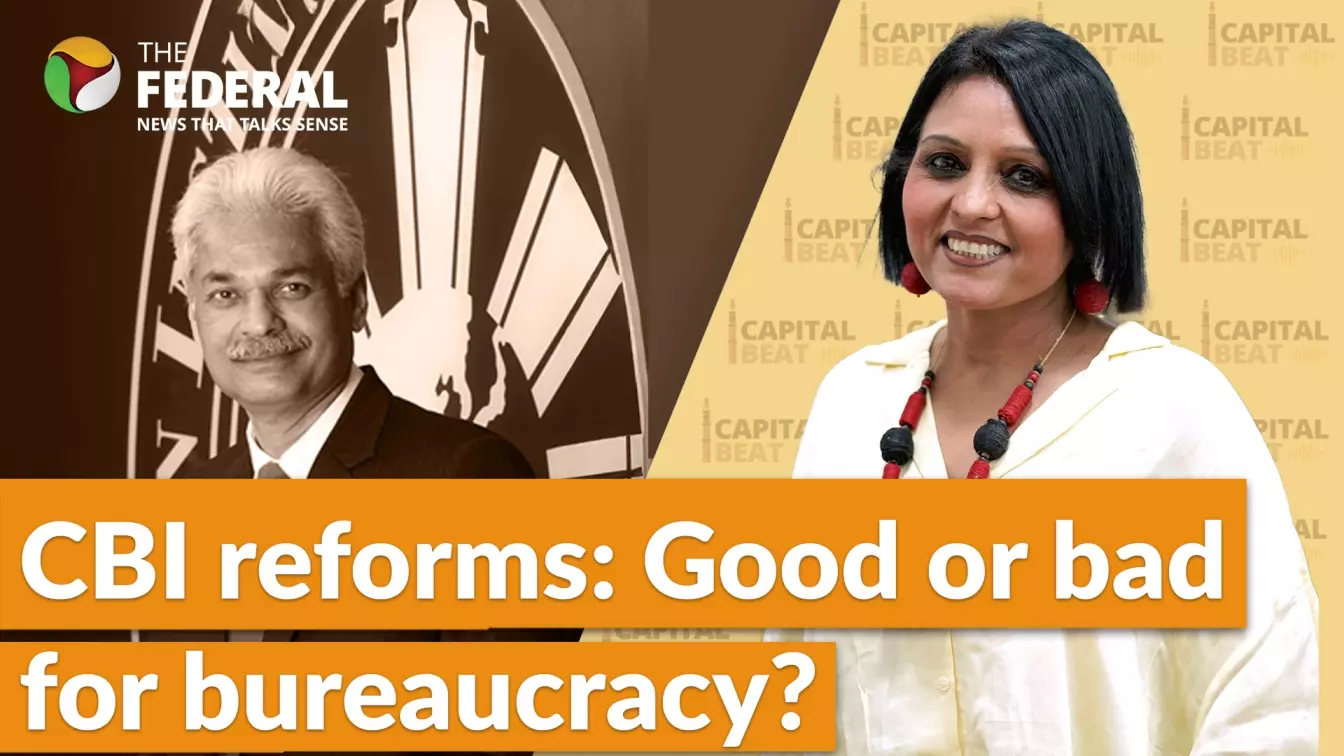
Retd IPS officer Yashovardhan Azad
Retd IPS Yashovardhan Azad analyses pros and cons of CBI reforms
CBI’s sweeping reform push: New powers, new recruits, and big questions for federalism. Is India's premier agency getting too powerful?

On this episode of Capital Beat, The Federal’s Neelu Vyas speaks with former IPS officer and intelligence expert Yashovardhan Azad on a slew of controversial recommendations by a parliamentary panel to reform the Central Bureau of Investigation (CBI). From lateral entry and direct recruitment to bypassing state consent in probes involving national security and corruption, Azad lays bare the risks, merits, and political sensitivities of these proposed changes.
State consent controversy
A major recommendation is to empower the CBI to investigate corruption and national security-related cases without the general consent of state governments. Currently, at least eight Opposition-ruled states — including West Bengal, Tamil Nadu, and Punjab — have revoked this consent, severely limiting CBI operations within their jurisdictions.
Also read: CBI raids Bhupesh Baghel’s properties in Chhattisgarh; former CM responds
While Azad agrees that fighting corruption is crucial, he questions whether bypassing state consent is the right approach in a federal democracy. “There is a problem in fighting corruption in India—cases drag on, and conviction rates are low,” he said. However, he warned that such legislation could be “very contentious” and provoke backlash from states.
He suggests starting with allowing the CBI to investigate central government employees posted in states, citing a previous high court judgment as precedent.
Misuse and federalism
Azad also raises the concern that CBI investigations are often perceived as politically selective. “There’s criticism that Opposition leaders are targeted while those who join the ruling party escape scrutiny,” he said. Without addressing this perception, removing the need for state consent could appear as an “attack on federalism.”
He draws a contrast with the National Investigation Agency (NIA), which already has nationwide jurisdiction for terrorism cases and operates with less political baggage. “NIA has done an excellent job across states, but CBI's involvement in corruption cases introduces political colour,” Azad said.
Lateral entry and cadre debate
The second proposal — allowing lateral entry of specialists in fields like cybercrime, financial fraud, and forensics — was met with cautious approval from Azad. “This is a welcome move, unlike the bureaucracy, the CBI might benefit from expertise,” he said, adding that Opposition concerns over bypassing reservation policies need careful handling.
However, the third suggestion — creating a direct recruitment cadre for the CBI — drew criticism. Azad argued that the current deputation system provides flexibility and accountability. “Once you have permanent recruits, it's hard to act against non-performers. Deputation allows better control and quick removal,” he explained.
He also blamed bureaucratic red tape for slowing down appointments. “Why not empower the CBI chief to choose his team directly? Why all these layers of file pushing?” he asked.
Challenges in implementation
The panel report cites staff shortages and lack of incentives for deputation as reasons to move towards direct recruitment. But Azad dismissed this logic. “It’s like throwing the baby out with the bathwater. Instead, fix the delays and make CBI postings more attractive,” he said.
Azad also emphasised improving work conditions. “You can’t expect every CBI officer to work 22 hours out of deshbhakti. Improve their work environment first,” he added.
Transparency and public trust
One panel suggestion that Azad wholeheartedly welcomed was greater transparency in CBI functioning. “Publishing annual reports, case updates, and statistics is important,” he said. While CBI is currently exempt from the Right to Information (RTI) Act, Azad believes non-sensitive case details should still be made public to foster trust.
He drew parallels with the US intelligence community, which routinely releases annual reports. “Our intelligence agencies should do the same,” he said, backing the proposal made by former IPS officer and panel chair Brijlal.
Also read: 'Mystery fire case': CBI filed FIR against Yashwant Varma way back in 2018
Legal hurdles ahead
Azad predicted that any attempt to push legislation overriding state consent would be challenged in court. “This will go right up to the Supreme Court. The states are bound to oppose it,” he said. However, he added that legally, allowing the CBI to investigate misuse of central funds might stand constitutional scrutiny—provided fairness is ensured.
Focus on fairness
In conclusion, Azad emphasised that the real issue isn’t legislative reform or recruitment structure—but the perception of fairness and independence. “The CBI’s investigative skills are not in question. The problem is its image as a ‘caged parrot’ led by political interests,” he said.
He called for empowering CBI leadership, ensuring the even-handed pursuit of cases, and bringing in specialists to strengthen investigations—not bypass federal checks and balances.
(The content above has been generated using a fine-tuned AI model. To ensure accuracy, quality, and editorial integrity, we employ a Human-In-The-Loop (HITL) process. While AI assists in creating the initial draft, our experienced editorial team carefully reviews, edits, and refines the content before publication. At The Federal, we combine the efficiency of AI with the expertise of human editors to deliver reliable and insightful journalism.)

